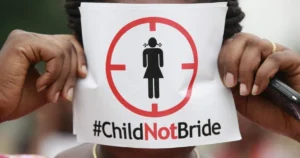ISLAMABAD: A recently passed law prohibiting the marriage of individuals under the age of 18 in the Islamabad Capital Territory has been legally challenged in the Federal Shariat Court (FSC), reigniting a nationwide debate on the intersection of Islamic teachings and legislative reforms.
The law—formally titled the Islamabad Capital Territory Child Marriage Restraint Act 2025—was signed into effect by the President on May 27, following its approval in both houses of Parliament. Framed to safeguard children’s rights and curb underage marriages, the law includes penalties for adult males marrying minors, parents or guardians facilitating such unions, and for failing to register child marriages.
READ MORE: Council of Islamic Ideology Labels Pakistan’s Child Marriage Ban ‘Un-Islamic’
However, a petition submitted by citizen Shahzada Adnan through legal counsel Advocate Mudassar Chaudhry disputes the law’s legitimacy. Naming the Ministry of Interior, Ministry of Law and Justice, and the Council of Islamic Ideology (CII) as respondents, the petitioner asserts that the Act contradicts both the Constitution of Pakistan and Islamic jurisprudence.
“The law is in direct conflict with the principles of Sharia and is therefore unconstitutional and un-Islamic,” the petition states.
Citing specific sections of the Act, the petitioner argues that the age limit imposed undermines Islamic principles, which prioritize physical and mental maturity—typically marked by puberty—over a fixed numerical age. The challenge stresses that Islamic teachings emphasize Nikah (marriage) as a sacred contract where maturity, not age, is the deciding factor.
The petition draws upon verses from the Holy Quran and Hadith to support its claim and alleges that the legislature failed to incorporate the viewpoint of the CII. The CII had earlier criticized the legislation, stating that categorizing under-18 marriages as equivalent to rape was incompatible with Islamic teachings.
“The law negates the Islamic understanding of marriage, which does not assign a specific age but instead requires maturity and understanding of marital responsibilities,” the petition adds.
Religious and political figures have also voiced their opposition. Maulana Fazlur Rehman, chief of the Jamiat Ulema-e-Islam (JUI-F), condemned the law, accusing the government of undermining Islamic values. Speaking at a recent press conference, he alleged the legislation “promotes immorality by making legitimate marriage difficult while facilitating unlawful relationships.”

“This country has witnessed many changes under the guise of women’s rights. Now, legitimate marriage is being restricted while previous regimes made fornication legal through amendments,” Fazl said.
In response, JUI-F announced a series of protest rallies and a large-scale conference in the Hazara Division of Khyber Pakhtunkhwa on June 29, aimed at raising public awareness about what it calls “threats to national sovereignty and Islamic principles.”
The legal challenge has once again spotlighted the complex and often controversial relationship between modern legislative frameworks and traditional religious doctrines in Pakistan. As the case proceeds, all eyes remain on the Federal Shariat Court, which will determine whether the law aligns with the tenets of Islam or violates the country’s foundational religious values.





